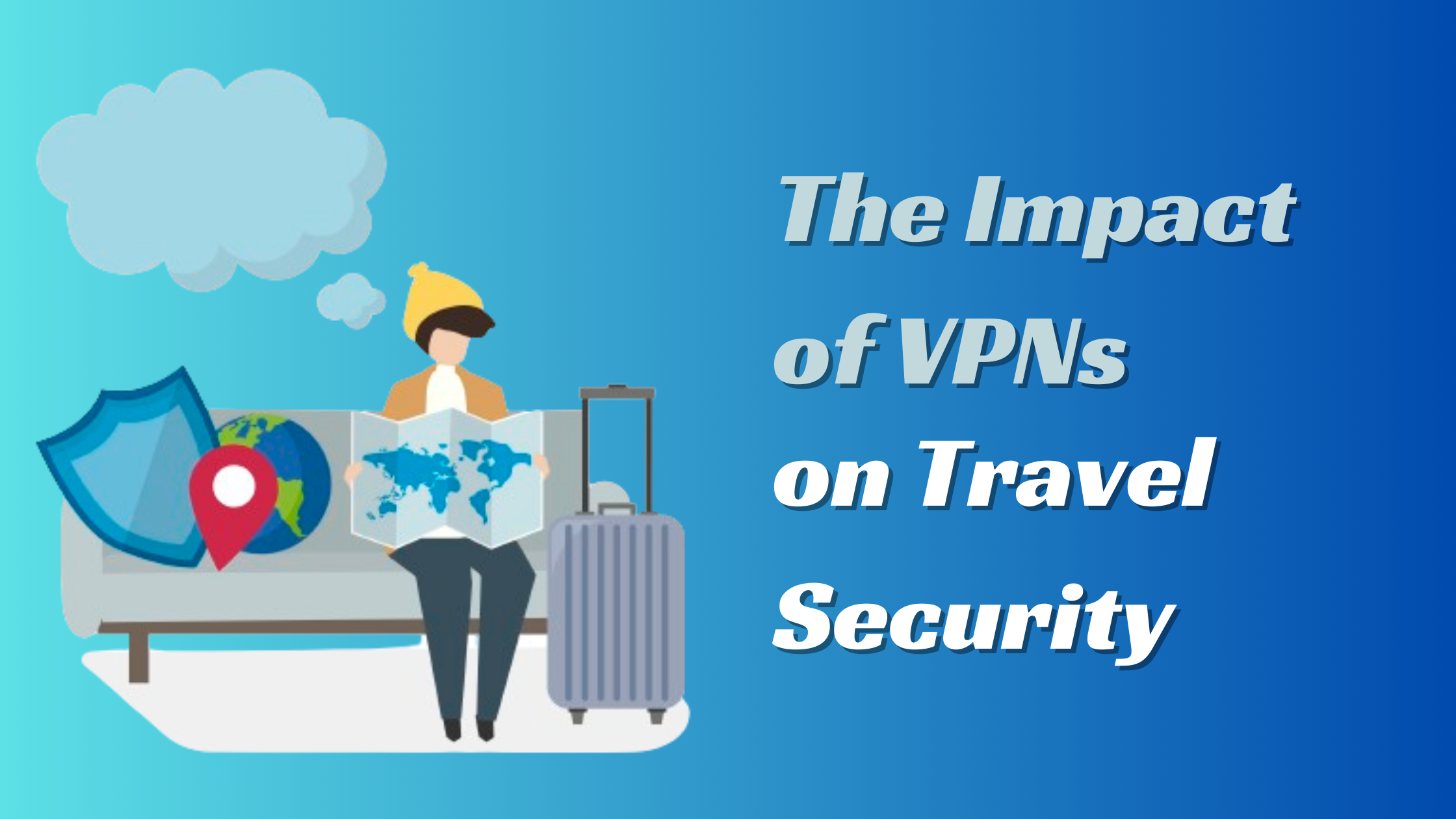The Impact of VPNs on Travel Security
Travelling the world is a privilege for most people, but it comes with challenges, especially when considering your online security.
Public Wi-Fi networks are available in most countries—at airports, coffee shops, hotels, and popular tourist attractions. Still, these networks often lack the security measures to protect personal information.
Virtual Private Networks (VPNs) are a must while travelling. They protect and secure data while connecting to public Wi-Fi networks. In 2023, about 42 per cent of Americans used VPNs, which shows how users today value information security.
Read on to learn more about the impact of VPNs while travelling and how they can safeguard your data. We’ll also give you some tips on how to find the best VPN while on vacation or a work trip.
The Pros and Cons of Public Wi-Fi
Public Wi-Fi can be a lifesaver while travelling. However, it does come with a set of disadvantages, too.
Pros
Having free Wi-Fi is very convenient while travelling. Here are some of the main advantages of public Wi-Fi networks:
- Accessible: Public Wi-Fi makes it easy to access the internet when you’re away from home.
- Cost-effective: Most public networks are free to use, saving you the hassle of purchasing a foreign SIM card to get online.
- Productivity: It keeps you connected and can help you plan your trip on the go. You’ll be able to get some work done in places like coffee shops, malls, and hotel lobbies.
Cons
As great as public Wi-Fi is while travelling, there are some specific security risks involved:
- Man-in-the-middle attacks: Hackers can create a fake public Wi-Fi network (which looks legit) and trick you into connecting. Once you’re connected, the hacker can intercept all your data.
- Snooping: Hackers use tools to monitor the traffic on unsecured public networks, capturing personal information.
- Unencrypted networks: Most public Wi-Fi networks lack encryption, making it easier for anyone to steal your data.
Because of these inherent risks, you must install a VPN on your device.
How VPNs Enhance Travel Security
A VPN secures your connection by providing a tunnel between your devices and the internet. It encrypts all your data, meaning anyone wanting to intercept it on a public network won’t be able to read it.
Here’s how VPNs can improve your security while browsing abroad.
Encryption
VPNs use encryption protocols to safeguard your data while online.
When you connect to a public network with your VPN enabled, all your incoming and outgoing data will be encrypted. The encryption protocol transforms your data into unreadable code, making it nearly impossible for cybercriminals to decipher.
Secured connection
Public Wi-Fi networks often lack security measures to protect users.
A VPN uses its server to connect your device to the internet. It acts as a shield for your traffic from those trying to access it. This secured connection safeguards you from potential security risks while using public networks.
IP address masking
VPNs mask your IP address, which usually acts as a unique identifier of your device on the internet. Your IP address can reveal your location, allowing sites (and hackers) to track your online activity.
Enabling a VPN masks your IP address and replaces it with the IP address of the VPN server.
This masking offers enhanced privacy and, as an added benefit, helps you avoid targeted ads based on your browsing behaviour.
Access restricted content and apps
Some countries block certain apps or websites. Although this is not directly related to travel security, you might be prevented from using specific social networks that allow you to communicate with your loved ones.
A VPN can mask your location and bypass geo-restrictions.
Avoid throttling
Some internet service providers (ISPs) or governments throttle the bandwidth for specific sites. Enabling a VPN prevents the ISP from tracking which sites you use, allowing you to avoid throttling.
Potential Disadvantages of Using VPNs While Traveling
Although the security advantages make VPNs great to use when you travel, there are some potential drawbacks associated with using them abroad that you should know about.
Slower browsing speed
Redirecting your connection via a VPN can result in slower internet speeds than if you were directly connected to the network.
This will most likely be unnoticeable if you’re browsing the web, but you’ll notice a slower speed once you start streaming or downloading data.
Connection issues
On rare occasions, a VPN server might go offline. This will cause connectivity issues when you need your VPN and a reliable internet connection.
Some VPNs have multiple servers, which is a way to get around this potential problem.
Blocked VPNs
You may discover that ISPs, public networks, or governments block specific VPN protocols in some countries or regions. This will make your VPN useless, and you’ll have to switch protocols or browse without it, exposing you to cyber risks.
Choosing a Reliable VPN for Travel
VPNs can be used on mobile devices and desktop computers. In a survey, 32% of users connected VPNs using mobile phones. There are plenty of options for PC, Android, or iOS VPNs.
Here are some factors to consider when choosing a VPN for travel:
- Strong encryption: You need to look for a VPN that uses industry-standard encryption protocols so you know your data is secure.
- Vast server network: VPNs with a network of servers across different locations can help you access geo-restricted content.
- Speed and stability: Your VPN should not impact the speed and strength required for seamless online browsing and video calling.
- Multiple device support: Choose a VPN to connect several devices simultaneously. This means your phone, tablet, and laptop could all be connected.
- User-friendly interface: Traveling is stressful enough, so you don’t want to struggle with a VPN. Look for a user-friendly interface that makes setting up, configuring, and connecting to your VPN easy.
You can use a VPN like IPVanish for your travels. They offer a global server network, fast connection speeds, robust encryption, and an easy-to-use interface with dedicated apps to help you stay safe online.
Wrapping Up
Travelling is a luxury, but travelling with a VPN is a necessity. Although public Wi-Fi networks are incredibly convenient while away from home, they pose inherent threats to personal information. A reliable VPN lets you encrypt your data, protect your private information, and browse without worrying about hackers snooping on your online behaviour.

















